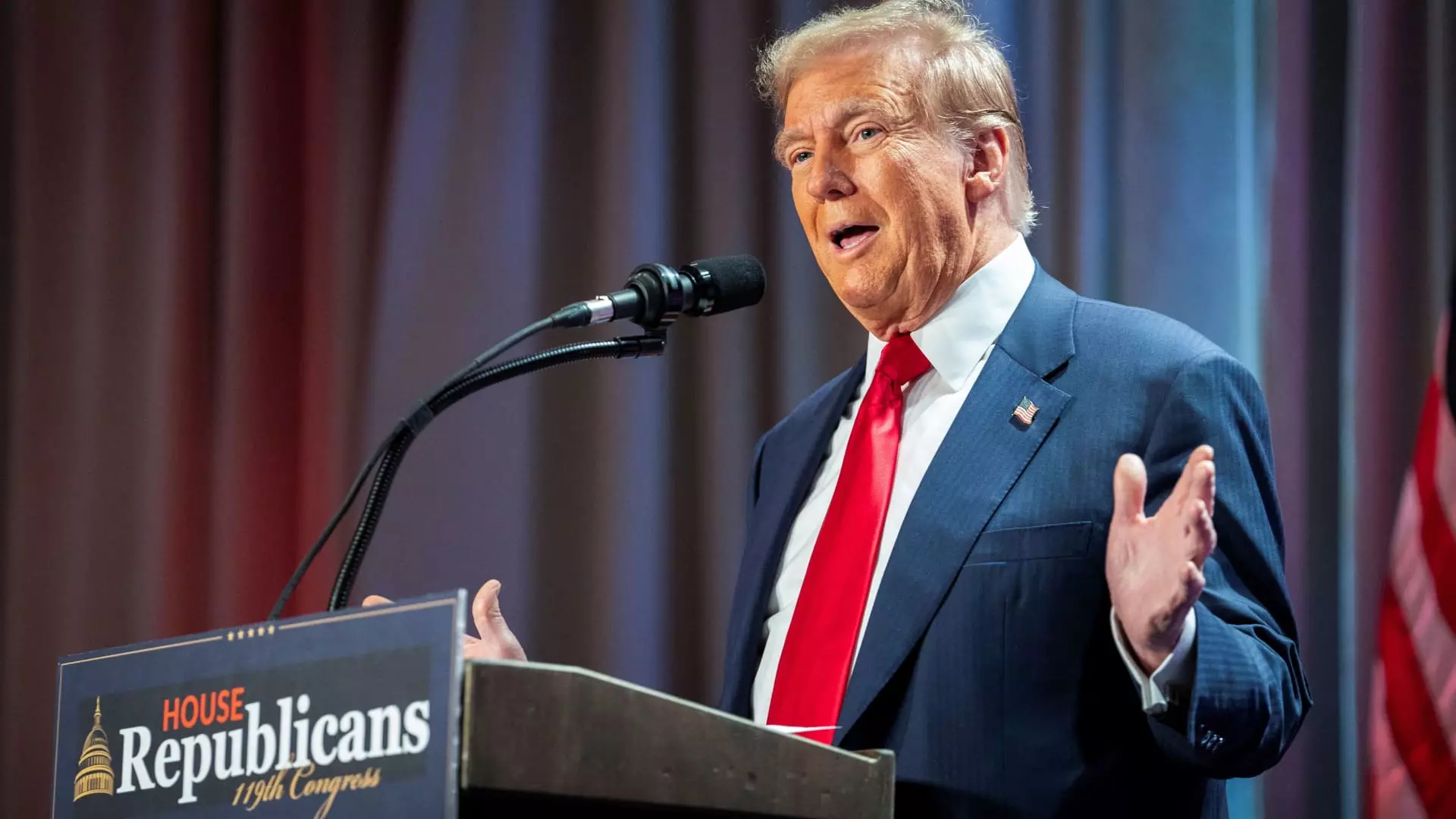In the ever-evolving narrative of U.S. energy policy, the appointment of Chris Wright as Secretary of the Department of Energy (DOE) signals a dramatic pivot toward fossil fuels and a pronounced skepticism regarding climate change initiatives. Wright, a veteran of the oil and gas sector, has built a career centered around maximizing fossil fuel production, and under a Trump administration, this philosophy is expected to dominate DOE’s strategic direction.
Chris Wright is not merely a businessman; he is an outspoken advocate for fossil fuels. As the founder and CEO of Liberty Energy, an oilfield services company located in Denver, he has often positioned himself as a counter-voice to the prevailing climate change discourse. Wright’s ideology, which views global warming activists as alarmist, sets him apart in the mainstream conversation surrounding energy policy. His previous statements, including those advocating for unrestricted fossil fuel production as a means to alleviate poverty, serve as a foundation for anticipating his policies should he secure the DOE position.
Wright’s media presence has sometimes crossed into the theatrical, notably when he famously ingested fracking fluid to illustrate its safety—a stunt that highlights his strategy of engaging the public through shock value. This blend of bravado and business acumen marks him as a figure likely to influence energy discourse significantly. However, one must consider the implications of his lack of political experience. Involvement in high-stakes governmental affairs requires more than business insight; it requires an understanding of the intricate dynamics within both domestic and global energy frameworks.
The Implications of a Fossil Fuel-Centric Energy Policy
A pivotal aspect of Wright’s anticipated leadership at the DOE hinges on his compatibility with Trump’s broader energy goals—namely, to amplify oil and gas production. Such a focus directly contradicts the shift toward renewable energy sources that had gained traction under previous administrations. As the world grapples with the implications of climate change, Wright’s proposed policies could isolate the U.S. in global efforts to address environmental crises. If he dismisses climate initiatives, America risks falling behind in international energy conversations and technological advancements in clean energy.
Under his guidance, the Department of Energy could potentially prioritize traditional energy procurement over investment in sustainable alternatives like solar, wind, and geothermal energy. Given that the department also manages the Strategic Petroleum Reserve and oversees energy diplomacy, Wright’s fossil fuel-centric approach may exacerbate tensions with both environmental advocates and global partners advocating for sustainable energy solutions.
Complicating this landscape is the renewed energy demand in the U.S., spurred by emerging technologies and societal shifts, from artificial intelligence to electric vehicles. The past two decades have witnessed a stagnation in energy demand, but the recent surge calls for a balanced approach that considers not just fossil fuels but also the integration of renewable sources. Wright’s leadership will be scrutinized in context: Can he reconcile the ambitions of an energy-hungry nation with the urgent necessities of climate responsibility?
The situation is further complicated by the reality that the majority of oil drilling operations occur on non-federal land, meaning that while Wright may influence policy at a high level, actual drilling decisions are often in the hands of private companies. This dynamic reflects the broader tension between government oversight and market-driven energy production. As U.S. oil output reaches unprecedented levels under an administration that promises an energy renaissance, there remains uncertainty about the extent to which Wright and the Trump administration could further stimulate this growth without attributions to the pressing concerns of climate change.
The potential appointment of Chris Wright to lead the DOE is emblematic of a broader ideological battle over America’s energy future. His track record as a fossil fuel advocate positions him against a backdrop of renewed energy demand and pressing climate crisis concerns. The path forward will not only test Wright’s capacity to implement a pro-fossil fuel agenda comprehensively but also highlight the delicate balance between technological advancement and environmental responsibility. How this scenario unfolds will significantly shape the contours of U.S. energy policy in the coming years, especially in a world increasingly defined by the imperative to combat climate change.


Leave a Reply